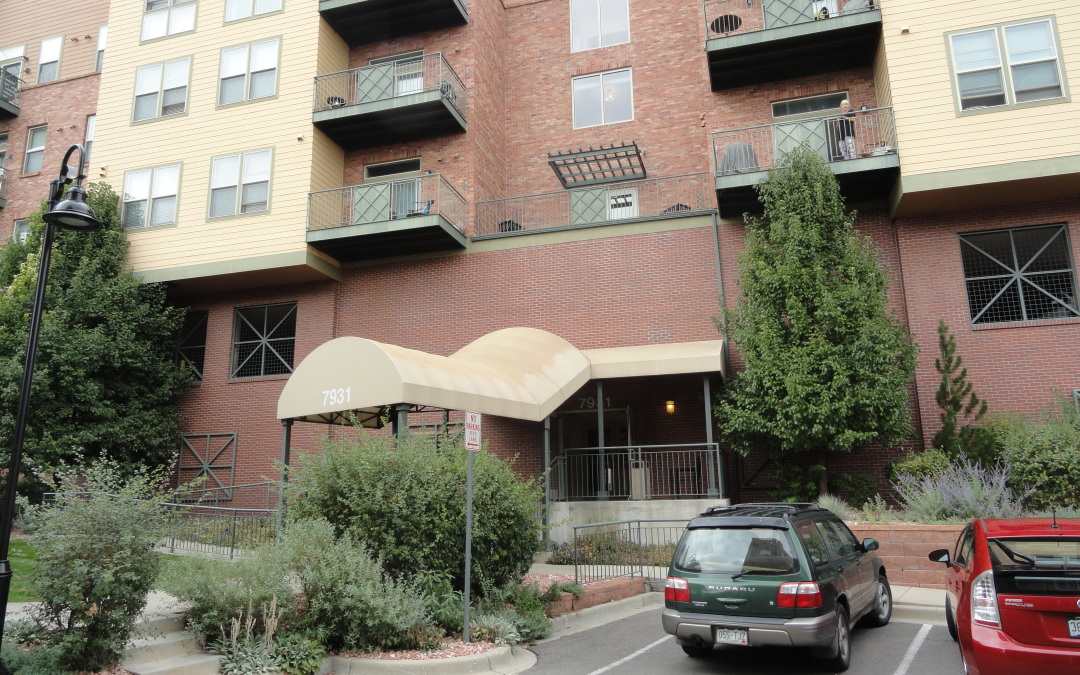
Real Estate Investing
If you have never rented out a home before, you likely have worries shared by many first-time landlords. With the help of a Denver property management company, you can enjoy the benefits of real estate investing without the drawbacks. With soaring rental prices in Denver, Aurora, Parker, and more cities, it makes sense to keep your residence instead of selling it. People who are new to real estate investing often have questions about how the change will affect their financial situation.
Will it stop me from getting another mortgage?
Because lending requirements aren’t as strict as they once were, you will likely qualify for a mortgage on a second home in your new location. Some lenders ask for evidence to show you intend to rent out or sell your current residence before they will give you a loan at a lower interest rate for your new residence. As long as you will occupy the new residence, you are eligible for easier lending terms such as a 5 percent down payment instead of the 20 percent for investors. Your lender won’t place any restrictions on what you do with your former residence, but you typically require that you not rent out your new (owner-occupied) residence for at least one year.
Do I have to stay on call?
Another concern new landlords have is that they will have to do all the repairs themselves or hire different contractors. By working with an experienced Denver property management company, it’s a burden off your shoulders. A property manager enforces the lease, finds qualified tenants and maintains your rental property. If you relocate to another part of the country, you won’t have to fly out to check on your rental home every few weeks. You won’t receive any urgent phone calls in the middle of the night, although your property manager might.
Can I sell when the market goes up?
Some people become reluctant landlords because they owe more money on their home than they can get by selling the home. Other people feel excited about real estate investing because they know rents are strong. According to an article by the Christian Science Monitor, Denver experienced the biggest rent hike this year. Even though rent has skyrocketed in the Mile High City, you may offer residents a reasonable rent. If you are making a profit and your tenants are happy, keep a competitive edge. When you are ready, you are free to stop using a property manager and list your rental home for sale. Many investors get so accustomed to the tax breaks and easy cash flow that they decide to expand their real estate investing portfolio instead of reducing it.
Even if you never thought you’d own a rental property before, we can help you manage all the details. At Legacy Properties-PM, we work with people who own only one rental home in Denver as well as experienced investors with several lofts, condos or homes in Denver’s hip neighborhoods. We are proud members of NARPM, the National Association of Residential Property Managers. For more information on real estate investing in Denver and surrounding areas, please call 720.989.1996 or contact us.

Property Management

What is the difference between a condo and an apartment?
The main difference between a condo and an apartment basically comes down to whether they are individually or privately owned, owned by a corporation, or by a management company.
What is a Condo?
A condominium, or condo for short, is often a property that is shared and contains individually owned units/residences. Coming from a legal standpoint this means basically that when you purchase an apartment you can call yourself a condo owner.
What is an Apartment?
Apartment is a term that almost always applies to a building or buildings with units that are rented out. Most times a corporation runs the complex of buildings and residences. One management company manages all residents versus a private landlord.
More about the difference between a condo and an apartment:
Condominiums usually offer services and facilities to condo owners, such as maintenance repairs, lawn care, pools, gyms and club houses. Many of these services, like clubhouses, exercise facilities, and pools are also offered in apartment complexes, but are not required to be maintained by the owner of each unit.
Condo owners or their tenants must follow all set regulations and policies of the condominium’s homeowners association. This often includes, monthly association fees, requires owners to maintain a specific type of appearance outside and around the premises of the residence and pet restrictions in and around the property of the community.
The difference between a condo and an apartment in this aspect is that apartments are not considered to be in a shared community. This is because fees and maintenance are already included in rental costs and taken care of by the management company.
If you’re a condo owner looking to rent your property, look no further than Legacy Properties-PM. There are special rules to keep the difference between a condo and an apartment clear within communities. As an elite property management company that services Denver, Aurora, Parker, Highlands Ranch, Centennial, Littleton, Westminster and more cities in Colorado, we can help. Call 720.989.1996 or contact us.

Property Management
Investment properties can be very expensive. In fact, real estate is often the most expensive thing many people spend their money on. This can pose a problem for many potential investors. However, there are a number of options for financing a residential property. At least one of these options will be possible in a surprising number of cases, and often, multiple options might be possible. Let’s explore a few of the most common choices.
Bank Financing
This is the most common form of financing for a residential property. This requires the buyer to approach a bank and go through an application process. This requires a lot of paperwork, a credit check, and approval of the property, among many other things. If the bank approves the loan, the buyer must pay a sum of money in the form of a down payment and is usually required to offer some form of collateral. This is almost always the property that is being purchased, but doesn’t have to be.
Seller financing
Seller financing can be a little more tricky, because individual sellers tend to be less consistent than banks. However, if it works out, this can be a very efficient way to borrow money. A seller financed loan means that the payments are made directly to the seller over time, rather than the bank acting as a middle man. Because sellers are individual people, and because they’re often much more motivated to complete the sale than the bank is, they are likely to give a buyer much better terms on the loan. This could come in the form of a lower down payment, a lower interest rate, or payments that fluctuate over time according to the buyer’s ability to pay rather than interest rates.
Cash
Although it is rarely possible for a buyer to pay in cash, it can be a very successful option if you have the money. In this case, the cash is directly turned into an asset, and there are no loans to worry about. You also won’t have to worry about the potential of losing the property as collateral. Possibly the biggest benefit of paying in cash is that you won’t have to pay any interest. This could save you a lot of money.
Trade
This is probably the least common way to pay for property, but if you already own a piece of property that you no longer want, it’s possible that the seller may accept it instead of payment. It’s also possible to combine a trade with some of the other options. For example, if you finance a purchase through the seller, you may be able to make the down payment a house you already own that isn’t worth very much.
Need some more help with your residential property? Legacy Properties-PM is here in Denver, Aurora, Parker and more. Call 720.989.1996 or Contact us! We can help with anything you need, and we’ll be there from beginning to end.

Property Management
If you own residential investment properties, then you know the amount of work it takes to keep everything running smoothly. Finding quality tenants, collecting rent, dealing with maintenance calls, and enforcing the lease are just a few of the responsibilities that consume time and energy. A property management company can take the burden off of the owner by handling the day-to-day responsibilities, but it is important to find the best one to ensure your investment is being handled effectively. This list of questions will help you find the best manager for your property.
- How many years have you been managing properties? You don’t want to pick someone who is just starting out. Lack of experience may cause more headaches than just managing the property yourself.
- How many properties do you currently manage? One person can manage 30-40 properties, not including accounting responsibilities. Ask how many employees they have and do the math to figure out if they can give your property the attention it needs.
- Do you have referrals from previous or former clients?
- How do you handle maintenance issues? At what point does the manager contact you? When the repair gets to a certain dollar amount? How do they keep you apprised of the situation?
- How often do you perform property reviews? Exterior and interior reviews should be scheduled regularly to ensure the unit is being cared for.
- How is rent paid and deposited to my account?
- What financial records do you provide? Are there monthly statements available, and if so, how are they accessed?
- How do you communicate with tenants and owners? Is there a 24-hour phone number tenants can call with problems? Some larger companies offer an online portal for tenants and owners to access their account information and contact the managing company.
- How much do you charge for your services? Some companies charge a flat fee, while others do a percentage of the rent. Make sure it’s comparable to other reputable companies. Remember you get what you pay for.
- Are you a member of NARPM? Members of the National Association of Rental Property Managers are the cream of the crop when it comes to professionalism, dependability, and knowledge of the local market.
A professional property management company will be able to answer all of these questions without any qualms or hesitation. From their answers, you’ll be able to tell whether they are the right fit for your investment. If you own income property in the Denver area, call Legacy Properties-PM @ 720.989.1996 or contact us and we will be happy to answer your questions about our property management services.

Property Management
When you decide to purchase an investment property, there are some things you know you will have to deal with, both positive and negative. You hope that you will see some return on your investment, but also know that it will require some time put into maintenance, collecting rent, and other responsibilities. Because you never know when something will come up that needs attention, many landlords find themselves surprised with how tied down they feel with their rental properties.
Everyone needs to get away once in awhile. Family vacations and weekend trips are essential to finding balance in your life. But many property owners literally feel like a slave to their properties. What if something comes up while you are out of town? What would happen if there was a major plumbing leak, or the heat stops working in the middle of winter? How would you make sure the rent was collected or who would mow the grass? All these “What if’s” add up to property owners who never want to leave town, and families who are frustrated.
A property management company can take the responsibilities off your shoulders so it’s easy to get away. Finding great tenants, depositing rent, evaluating maintenance needs, and even making periodic reviews of the property will be taken care of, so you no longer need to be in town to take care of the day-to-day details of owning an income property.
The benefits don’t stop when you get back into town, though. Property management services continue around the clock, 24 hours a day, 7 days a week, so even when you’re home, you can focus on other things such as your family, hobbies, or job without the constant thought in the back of your mind that something in the investment property needs your attention.
If you own investment property in the Denver area, Legacy Properties-PM is a family-oriented company that wants you and your family to have time together, whether it’s taking a day trip to hike through the Garden of the Gods in Colorado Springs, a week in Hawaii, or a month-long cross-country adventure. Owning investment properties doesn’t need to tie you down, so call 720.989.1996 or contact us for more information.








